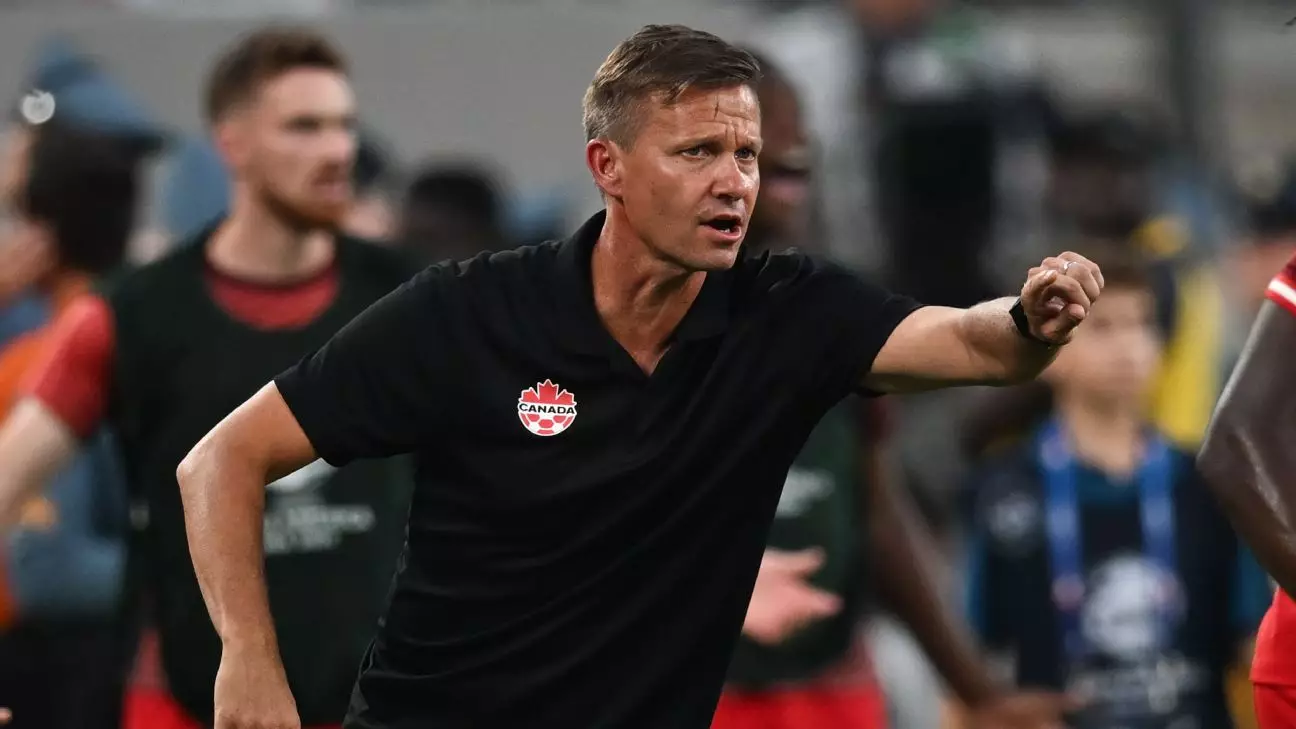In light of the upcoming Concacaf Gold Cup, concerns over the political climate in the United States have surfaced, influencing the willingness of Canadian fans to travel for their national team’s matches. Canada’s head coach, Jesse Marsch, has echoed sentiments reflecting the apprehensions many fans face. “I could see trepidation for anyone looking to travel to the U.S. at this current political climate,” he candidly noted during a Monday press conference. Such concerns encapsulate a broader apprehensive atmosphere, markedly influenced by increasing border tensions and incidents reported since the beginning of the most recent presidential term.
These fears are not unfounded. High-profile cases of Canadian travelers experiencing unjust detainment at the U.S. border, such as that of Jasmine Mooney—an actress and entrepreneur—highlight a growing trend of heightened scrutiny for Canadian citizens. Mooney’s twelve-day ordeal in an immigration detention facility sparks anxiety across the Canadian populace contemplating attending the tournament. The repercussions of such incidents are evident; Statistics Canada illustrated a significant decline in Canadian residents returning from the U.S., with a staggering 20% drop in air travel and a 35% decrease for car trips in just a month.
Marsch’s Vision and Team’s Aspirations
Marsch stepped into the role of Canada’s head coach with a storied background, having garnered experience across numerous international clubs. His philosophy emphasizes the power of unity, hinting that the absence of a robust fan base during the Gold Cup could detract from the team’s potential achievements. “It would be a shame if we didn’t get the kind of fan support that I think our team deserves from our country,” he expressed passionately. This sets the tone for the expectations surrounding the team as they gear up for a series of crucial matches.
Canada’s venture into the Gold Cup is particularly significant. As a co-host of the upcoming World Cup alongside the U.S. and Mexico, the nation is on the cusp of an unprecedented opportunity to solidify its position in international soccer. Yet, these endeavors are shadowed by the ongoing political tension that threatens to dissuade essential fan attendance.
The Stakes: Not Just Wins, But National Unity
Marsch’s aspirations for the team extend beyond simple victories; they encapsulate a deeper yearning for national unity and pride. He emphasized the intrinsic link between fan engagement and team performance. A strong showing by the Canadian team could weave a narrative of resilience and hope, transcending the scope of sports and reflecting the broader sentiments of the nation. As they prepare to open the Gold Cup against Honduras in Vancouver, the potential ramifications of the fan response loom large.
The tournament will kick off in the U.S., with the Gold Cup running from June 14 to July 6 at various U.S. venues, connecting soccer fans through shared experiences, yet separated by a fear that has pervaded cross-border travel. For a nation that is gradually rising in the ranks of soccer prominence, the political circumstances further complicate an already challenging landscape.
The Additional Hurdle: Marsch’s Suspension
Compounding these obstacles is Marsch’s own two-game suspension, which sidelines him during pivotal fixtures. While he cannot influence the game from the sidelines against key opponents like Honduras and Curaçao, he remains a steadfast supporter from a distance. This dynamic raises concerns about leadership and strategy during crucial matches and may add to the intensity of Canada’s challenges on the field.
The Gold Cup represents more than a mere sequence of soccer games; it is an opportunity for Canada to assert its place in the global arena as a host nation with fervent supporters. However, amid the backdrop of political tensions and travel uncertainties, the path appears fraught. The hopes of a proud nation hinge not only on the team’s performance but perhaps more crucially, on the hearts and courage of their fans willing to traverse the U.S. border, undeterred by fear.
In this context, the significance of the tournament transcends mere sport. It becomes a proclamation of Canadian resolve and unity in the face of adversity. As fan turnout becomes a litmus test for national spirit, the question remains: will Canada rally behind its squad or let current circumstances dictate their support?

